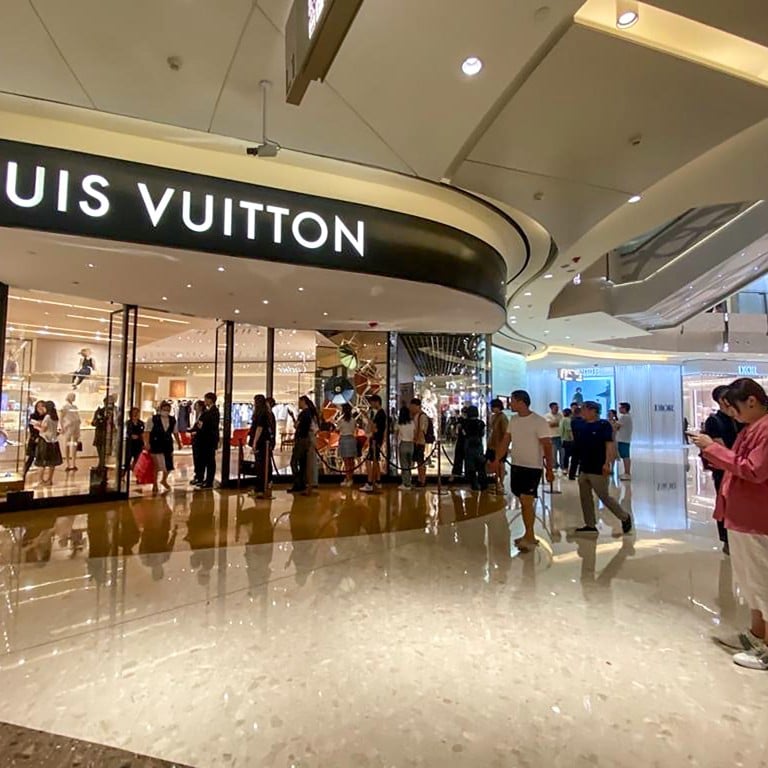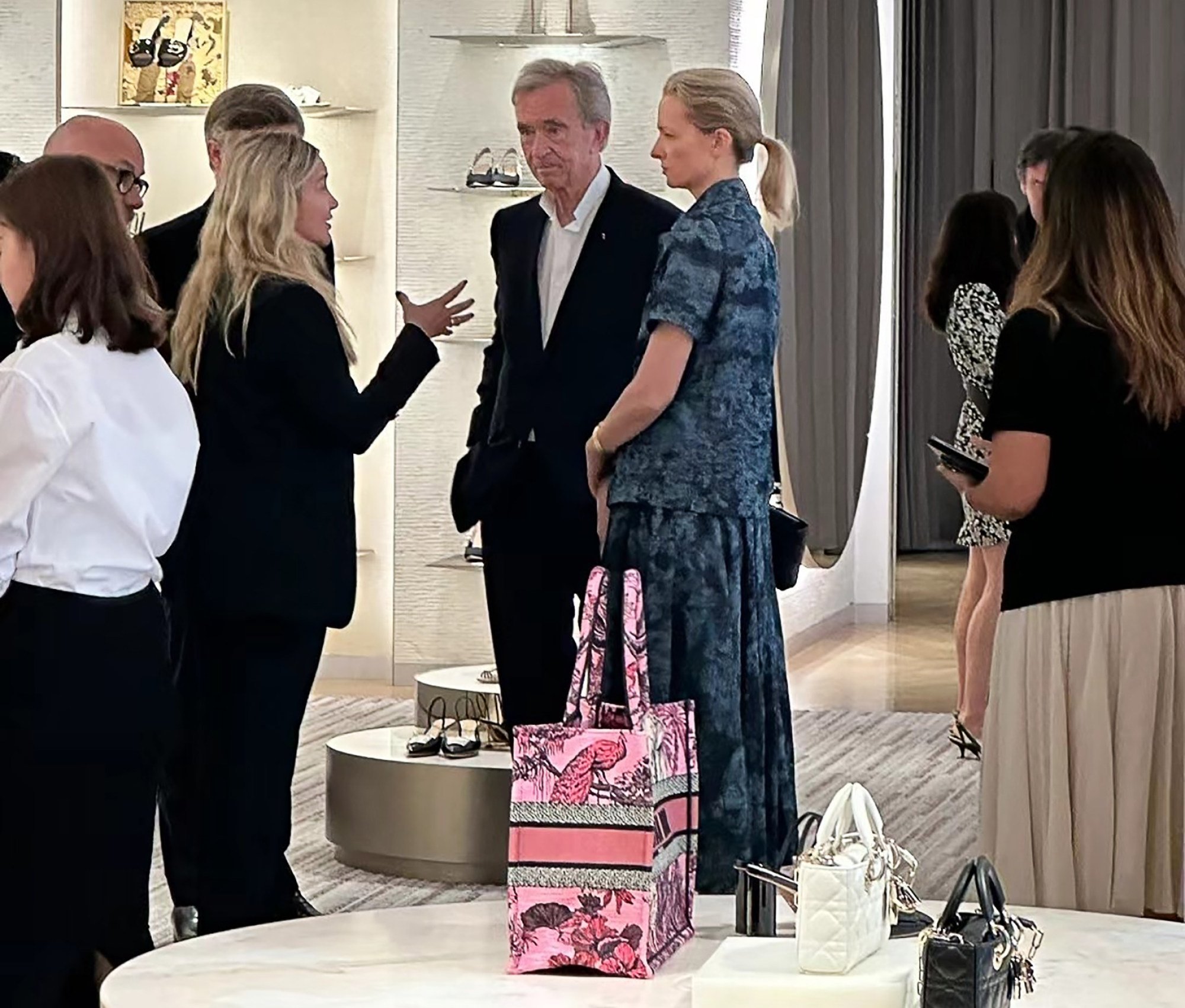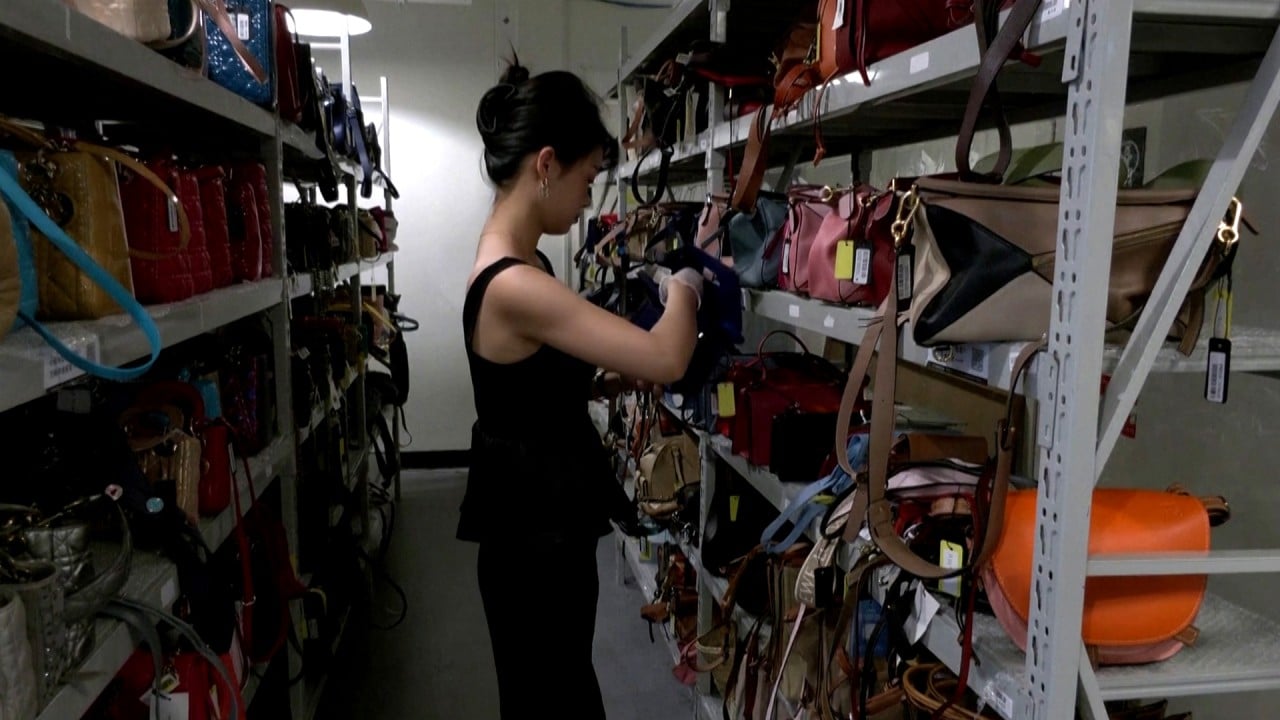
LVMH boss Bernard Arnault’s visit highlights growing importance of huge mainland Chinese market for luxury brands
- Since mainland China dropped its travel curbs, the heads of the world’s most recognisable luxury brands have been making a beeline there
- Brands and businesses are increasingly relying on China’s 1.4 billion population to drive growth amid uncertainties in the US and Europe, analysts say
He was the second top executive of a French high-end fashion group to embark on an apparent charm offensive to tap the huge mainland Chinese luxury market after a visit in February by Francois Henri Pinault, chairman and chief executive officer of Kering, whose brands include Cartier, Saint Laurent and Gucci.
These visits highlight how brands and businesses are increasingly relying on China’s 1.4 billion population, the world’s second-largest, to drive growth amid uncertainties in the US and Europe, according to analysts.

For the next four years at least, China’s luxury spending is set to outstrip that of the US and western Europe, according to market-research firm Euromonitor International.
Some Chinese consumers view luxury items as an investment tool to chase high returns.
“The prices of two Chanel leather bags I bought 10 years ago have doubled,” said Emma Xu, a white-collar clerk in Shanghai. “I will sell them and buy some brand new luxury products in the coming years because they will bring me good returns.”
Arnault topped off his recent trip with a visit to Hong Kong, a move which highlighted LVMH’s unwavering focus on the high-end market in the city, according to analysts.
Mainland Chinese consumers are likely to spend US$444.7 billion on luxury goods this year, increasing to US$632.5 billion by 2027, Euromonitor said.
In contrast, American consumers are expected to shell out US$264.8 billion for high-end items this year, rising to US$340.5 billion in 2027. For Western Europeans, luxury spending is set to grow by 29 per cent from US$295 billion this year to US$381.5 billion in 2027.
“Recovery across the regions is uneven. Only two regions have got back to pre-pandemic levels: Asia and North America,” said Fflur Roberts, head of luxury goods at Euromonitor. “China will continue to lead sales in the global luxury goods market and remains hugely important to the health of the industry.”
Generation Z – referring to people born around the turn of the millennium – is considered a category of consumer absolutely critical to the future of luxury brands, which must adapt to a set of values such as a commitment to sustainability that the cohort find relevant, Roberts said.
“China’s Gen Zs will be one of the most important consumer groups in the medium term, and as they gain purchasing power they will also form the backbone of economic growth in the next 10 years,” she said.
“Among other things, this will force luxury brands to meet sustainable goals and promises, become more relevant to these consumers through the use of new technologies. With emerging and developing markets driving growth, true cultural representation and inclusivity will be paramount.”
Investment in luxury, particularly leather goods and timepieces, as an alternative asset class is likely to surge, Roberts added.
“Moreover, the prospect of utilising these goods for income generation through rental platforms adds another dimension to their appeal,” she said.


